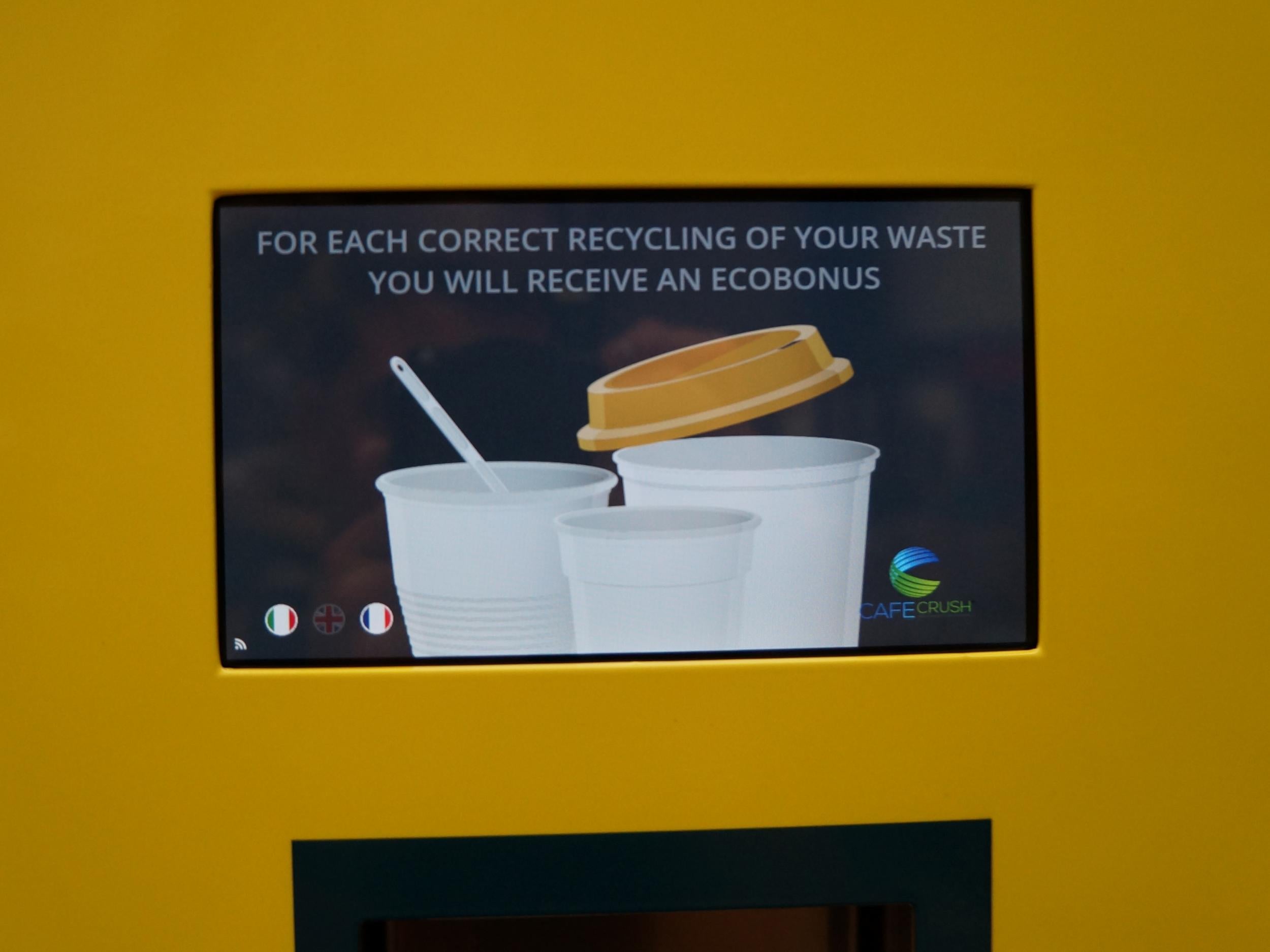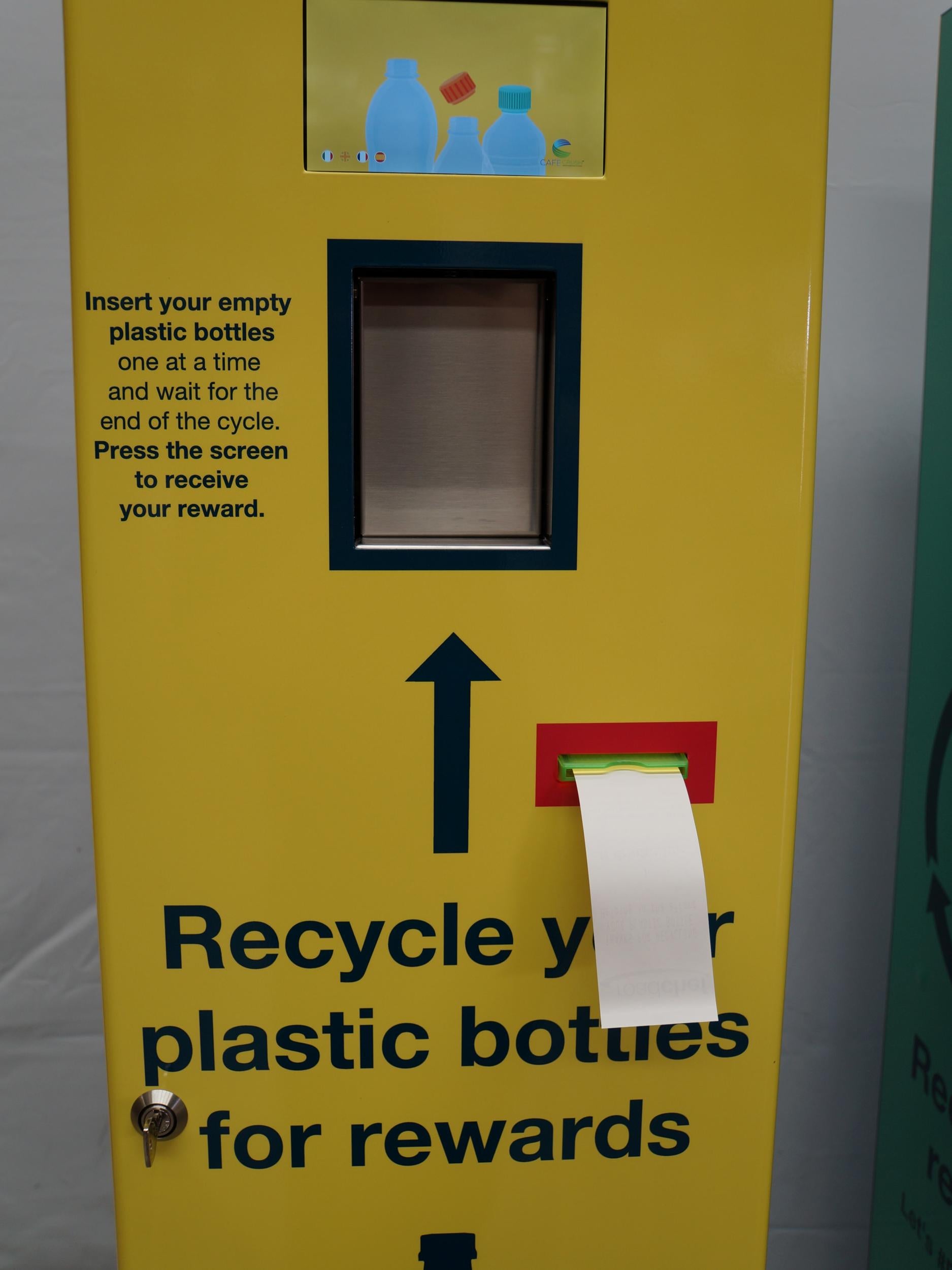Motorway drivers who bin coffee cups to receive cash vouchers
New scheme is part of efforts to cut roadside litter, which is linked to thousands of traffic accidents every year as well as harm to wildlife

Britain’s first “recycling reward” machines are being installed in an effort to clean up the country’s motorways.
Drivers passing through Maidstone Services in Kent will be issued with a 5p money-off voucher every time they insert a coffee cup or plastic bottle into special recycling machines.
The pilot project is part of an effort to stem the tide of rubbish dumped at the sides of motorways criss-crossing the country, which creates an eyesore and poses a threat to Britain’s wildlife.
Mice and other small creatures are often found dead inside plastic bottles, and a recent report by the Mammal Society revealed that many of Britain’s mammals were being driven to extinction by human activities.
Rubbish on the roadside can be a danger to humans as well, with 22,000 accidents caused by litter being thrown from vehicles reported in England alone last year.
In total, removing litter from motorways is estimated to cost £6m every year, with an average of 111 bin bags collected from each mile of motorway annually.
Gill Tysoe, roadside nature reserve officer for Kent Wildlife Trust said: “It saddens us when we come across a discarded bottle on the roadside, which at first appears to be full of sludge, but on closer inspection often reveals up to a dozen or more dead mammals – most commonly wood mice, voles and shrews.
“It is believed that they enter the bottles out of curiosity or in search of food but then become trapped and probably die from cold or starvation.
“We must all strive to dispose of our rubbish sensibly.”

The service station in Kent has been chosen due to its key location as a stop-off point for lorry drivers and tourists travelling to and from the continent.
To make the system even easier to use, the scheme will include giant funnel bins that lorry drivers can use without having to leave their cabs.
The bins were created by environmental charity Hubbub, and the scheme is backed by 13 Kent councils along with Highways England, Shell, Costa Express and Roadchef.
“Our aims are simple – to make it easier for motorists to do the right thing and recycle their empty bottles and coffee cups, and to promote a culture where littering is not accepted – especially given our County’s proud reputation as the Garden of England,” said Kent resource partnership chairman, councillor Rory Love.
Wayne Moore, Highways England service delivery manager said: “Each year we collect around 200,000 bags of litter from the motorways across the country – around 500 a day”.
“Litter isn’t just unsightly; it can block drains and harm wildlife. Picking it up puts road workers in harm’s way and is a distraction from other vital work they could be doing. So I'd urge road users to dispose of their litter responsibly.”
If after a six month trial they prove successful, Hubbub hopes the machines will be rolled out across the rest of England’s 1,800 miles of motorways.
The charity specialises in creating campaigns that make people change their attitudes or behaviour in relation to environmental matters.
One of their trials conducted in association with coffee chain Starbucks involves introducing a “latte levy” of 5p on disposable coffee cups to find out if it convinces people to switch to reusable cups.
Preliminary results released in April suggested the trial had led to a 150 per cent increase in reusable cup use in selected outlets.
The Independent has backed a latte levy through its Cut the Cup Waste campaign, which was launched to tackle the huge quantity of disposable coffee cups in the UK that end up being sent to landfill every day.
As plastic-lined coffee cups can only be recycled in specialist facilities, hardly any of the cups discarded in British facilities end up being recycled.
Join our commenting forum
Join thought-provoking conversations, follow other Independent readers and see their replies
Comments